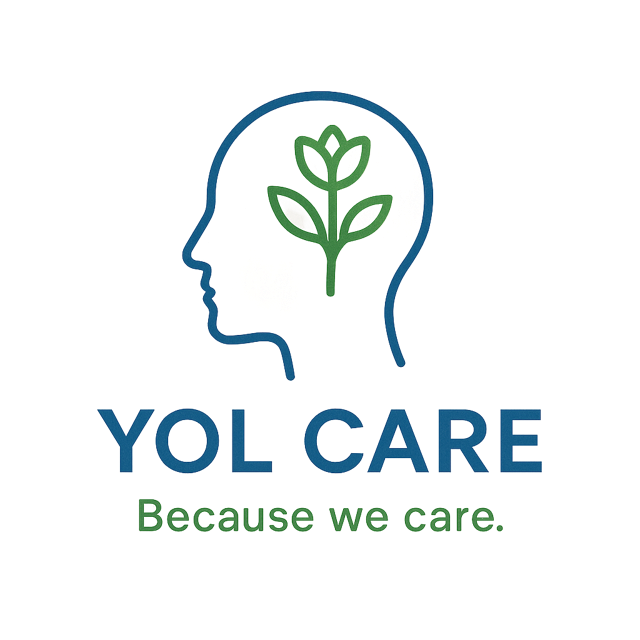Mental health disorders can affect anyone, at any age, and in any background. Too often, they are minimized or confused with a weakness of character. Yet they are full health conditions, just like a fracture or an infection. They require proper evaluation, a treatment plan, and structured support.
At YolCare, we meet people who have been suffering in silence for years, often unaware that their conditions can actually be treated.
Depression and OCD: two common disorders
Depression is not just “feeling low.” It is defined by persistent sadness, loss of interest, sleep or appetite disturbances, chronic fatigue, and intrusive negative thoughts.
With the right care, a person can gradually regain sleep, joy in daily activities, and new perspectives on life.
OCD is not simply being “a perfectionist.” It consists of Obsessions (intrusive, distressing thoughts) and Compulsions (repetitive actions to reduce anxiety).
Examples include obsessively repeating prayers or repeatedly checking cleanliness. These behaviors are not chosen but endured, and they exhaust and isolate the person.
CBT: an effective and concrete therapy
At YolCare, we use Cognitive Behavioral Therapy (CBT) among other approaches.
CBT is scientifically validated, focused on practical tools, aimed at changing the thoughts and behaviors that fuel distress.
Our psychologists take the time to understand each person’s story, and work step by step with clear, realistic goals.
Clinical stories
OCD in a 16-year-old adolescent
A young boy began to repeat prayers aloud obsessively, feeling guilty if he didn’t recite them “perfectly.” At school, classmates mocked him. He withdrew, lost friends, and stopped enjoying social life.
Clinical signs: intrusive religious obsessions, compulsive repetition, guilt and anxiety, social withdrawal, academic and family impact.
CBT support: cognitive restructuring, exposure with response prevention (accepting anxiety without compulsions),positive reinforcement (valuing progress).
Result: he started playing football again, participating in class, and said: “I still have a long way to go, but I already feel freer.”
Depression in a 62-year-old woman
Widowed for two years, she had withdrawn completely. She stopped all activities, slept poorly, cried often, and kept saying her life “was worthless.”
Clinical signs: persistent low mood, ruminations and self-devaluation, isolation and fatigue, loss of interest in hobbies.
CBT support: motivational interviewing to spark change, a gradual action plan (weekly walks, small activities), sleep hygiene and relaxation techniques, cognitive restructuring to counter the belief “my life has no value.”
Result: her sleep improved, she went out more, and even restarted her hobbies. She said:
“I still have sad days, but now I know what to do.”
What YolCare offers
👉 Personalized, compassionate support.
👉 Clear, concrete, progressive goals, built together.
👉 Tools from CBT such as: restructuring negative thoughts, gradual exposure, self-monitoring, reinforcement of progress, relapse prevention.
Key takeaways
- Mental health is a right.
- Depression is not inevitable.
- OCD is not an eccentricity.
- No one should carry psychological suffering alone.
At YolCare, we believe that with the right tools and a caring therapeutic relationship, anyone can find their balance again. Speak up. We can help.

